Read also A crisis in a crisis – Part 1: A catastrophe averted?
In part 2 of A crisis in a crisis, we speak to Le Gray Beirut’s Area General Manager, Georges Ojeil to find out how one of the most luxurious hotels located in central Beirut and at the heart of the action, is dealing with the coronavirus pandemic that hit the country whilst in its worst economic crisis yet.
Lebanon, once the Paris of the Middle East, had been dealing with anti-government protests for over 4 months since October 17th 2019. With a 40% devaluation of the national currency (Lebanese Pound LBP) against the American Dollar (USD) , it is our worst recorded economic crisis since the 15-year civil war, which ended in 1990. During these months, many businesses have had to close and many people lost their jobs. A new government was formed on January 23rd 2020 but protests and road blocks were continuing. It seemed, for some, that it just could not have got any worse.
The coronavirus pandemic did not spare Lebanon and hit it in its most vulnerable time. Whilst the first case was confirmed late February, the country officially entered lockdown around mid-March.
How are hotels coping?
I spoke to Georges Ojeil, Area General Manager of the 5-star hotel Le Gray, a Campbell Gray hotel and, Lebanon’s Leading Luxury Hotel, according to the World Travel Awards in 2019.
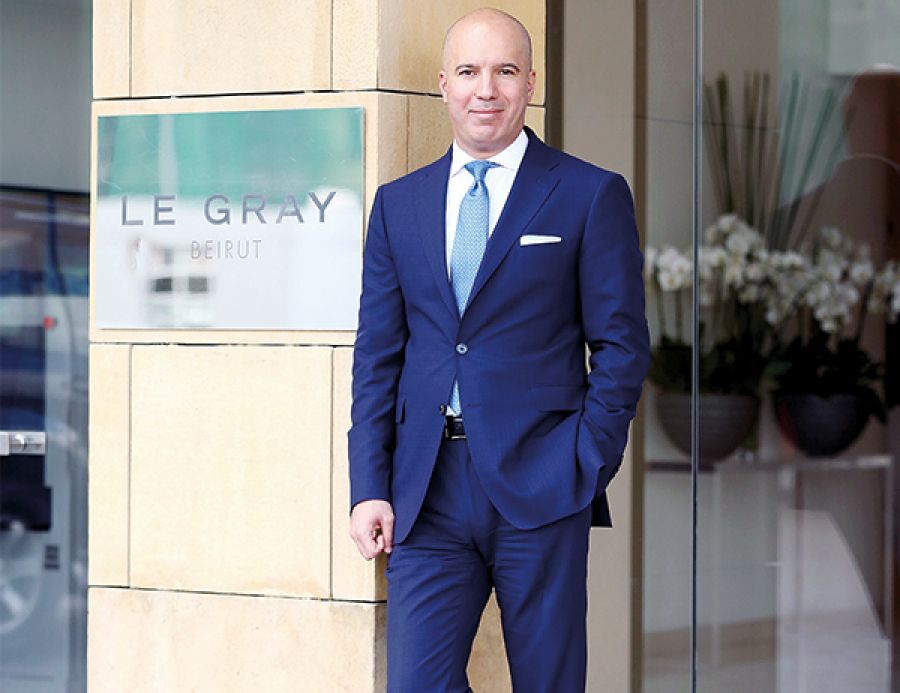 Exceptionally located in the capital Beirut’s downtown area, at Martyr’s Square, Le Gray has witnessed numerous extraordinary events taking place literally in front of the hotel, since it opened in 2009. The most recent events include the daily anti-government protests and the mass gatherings that have taken place in Martyr’s Square since mid-October.
Exceptionally located in the capital Beirut’s downtown area, at Martyr’s Square, Le Gray has witnessed numerous extraordinary events taking place literally in front of the hotel, since it opened in 2009. The most recent events include the daily anti-government protests and the mass gatherings that have taken place in Martyr’s Square since mid-October.
When asked about how the hotel was affected and how it had managed through all this commotion, Ojeil answers: “The sudden eruption of the civil unrest mainly happening at Martyr’s square, impacted the hotel’s performance on many levels and necessitated the implementation of radical measures. We were actually in the epicenter of the turmoil with limited access to the property. We had been subjected to many riots and suffered from intense fake news that initiated violent reactions; the latter led to a drop of 80% in occupancy for the hotel. Even the media hesitated to stay with us as to cover the events.”
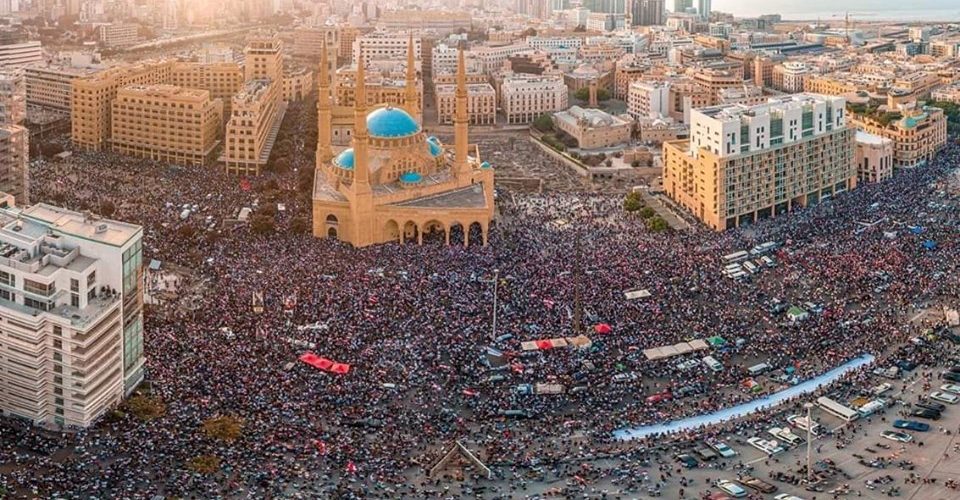 Martyr’s square, Beirut downtown, during the protests – October 2019 (extreme right: Le Gray Beirut building)
Martyr’s square, Beirut downtown, during the protests – October 2019 (extreme right: Le Gray Beirut building)
He adds, ”Safety was ultimately the major concern. We had to ensure the wellbeing of our team members and guests alike, securing the property. While also working on developing profit assurance plans, aimed at lowering the property’s break-even point, reducing losses, managing cashflow and optimizing the chance for business continuity. I am proud to say that we managed to survive and keep our doors open, despite all the challenges.”
Le Gray Beirut now faces a new challenge that in the midst of the current one: the coronavirus outbreak in Lebanon, the lockdown and confinement of its population and – finally – the closure of our borders to international travel. “Our team members are our most important asset! “states Ojeil. “We did not furlough any team member all through the last six months. However – and regrettably – we had to deploy some cost-saving measures in order to reduce our fixed costs, with an aim to secure the continuity and loyalty of our colleagues. We decided to go through those deep waters together. Hence, we’ve developed a food bank for our team members during the lockdown and have donated to the Red Cross to support our community.”
Hotels and operating businesses around the world need to find solutions to deal with the current pandemic. True, safety comes first, but there are no detailed official guidelines as to how to operate, on the ground, during this unrest. So operators are trying to the best of their ability to ensure their teams’ and guests health and safety.
“We’ve witnessed limited demand; nonetheless, we’ve been cautious and selective in order to avoid unnecessary risks. In parallel, we’ve deployed strict measures for employees and guests alike, ranging from the application of a strict admission to property protocol, hygiene and sanitation processes, medical surveillance of operating team members on daily basis through having a skeleton team staying at the property and substituted every week.”
Ojeil goes on to say: “We live today in a vastly evolving macro-context with limited clarity; what matters the most is how we treat each other today and this course of action will determine the quality of our properties when the industry will bounce back in the near post-virus future. We’re fighting – as we speak – to secure the continuity of our best asset: our team members. And at the same time, we started a come-back plan that tackles the financial aspect, the marketing and communication strategy through deploying more of a situational leadership.” He then adds: “As Darwin said:” it is not the strongest of the species that survives, nor the most intelligent, but the one most responsive to the change”. We will have to manage the change and adapt to the “new normal” of the hospitality industry imposed by the circumstances.”
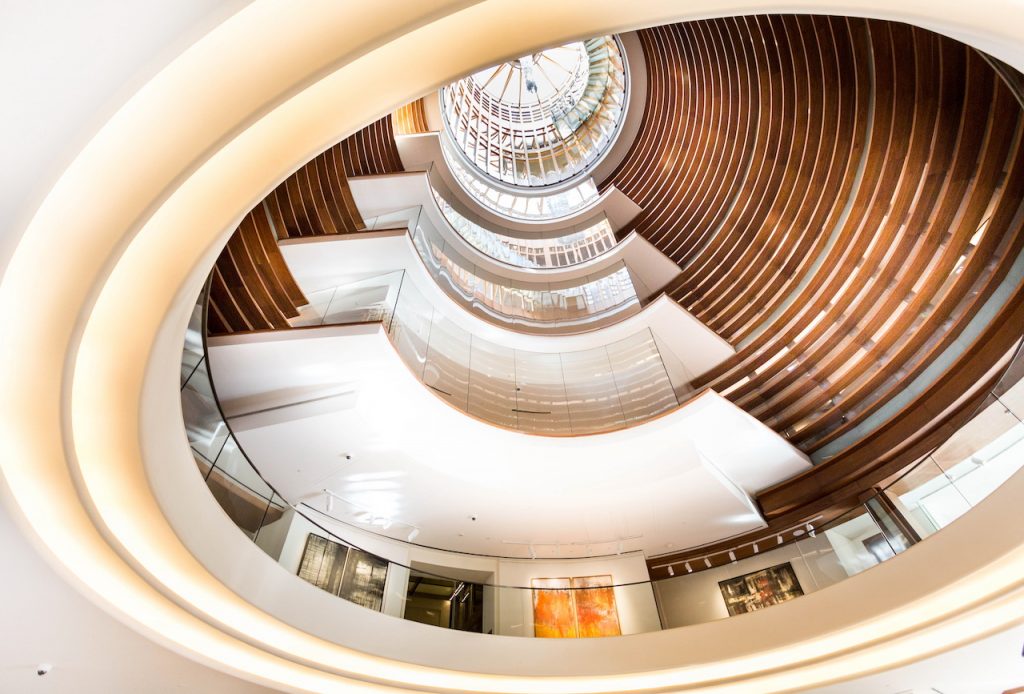 Le Gray sets an example for the local industry. Many are struggling to keep their head above water. With profound optimism, Ojeil remarks, “If I look back, try to link the dots backward and remember the events we’ve been through since the start of the agitated socio-political context, this would draw a smile on my face. Back then, I thought we will never make it. However, we did and came out of it stronger than ever. Today, I have faith that the pandemic outbreak will pass; so will the economic repercussion; and we will rise once again on Martyr’s square. This reminds me of a beautiful quote: “Life is not about waiting for the storm to pass, but about learning how to dance under the rain”.
Le Gray sets an example for the local industry. Many are struggling to keep their head above water. With profound optimism, Ojeil remarks, “If I look back, try to link the dots backward and remember the events we’ve been through since the start of the agitated socio-political context, this would draw a smile on my face. Back then, I thought we will never make it. However, we did and came out of it stronger than ever. Today, I have faith that the pandemic outbreak will pass; so will the economic repercussion; and we will rise once again on Martyr’s square. This reminds me of a beautiful quote: “Life is not about waiting for the storm to pass, but about learning how to dance under the rain”.
A message from the HoCoSo leadership team:
Like many of you, we have worked through numerous seismic events during our careers and we are total believers in the power of collective thinking in navigating uncertainty. At the start of this year, HoCoSo labelled 2020 as our Year of Community. We didn’t realise then how important this ethos would be. As we watched from Europe as much of China’s hotel market was shut down in a matter of weeks, we reflected on the Chinese character for crisis 危机, the literal translation of which is danger + opportunity. So we launched HoCoSo CONNECT, to focus on opportunity; to work on solutions; and to support each other. Our Weekly Forum series brings together a focused group of industry leaders to debate what is happening and to find solutions. We are motivated by a sense of community, responsibility and urgency.
To the hospitality industry, we offer freely our time to be a sounding-board to support your internal discussions, planning and communications; and to work on practical solutions together. If you are interested, we’d be very happy to get around a virtual table so please do get in touch. Jonathan Humphries, Katharine Le Quesne, Irene Zijlmans.
About the author – Rhea Watfa
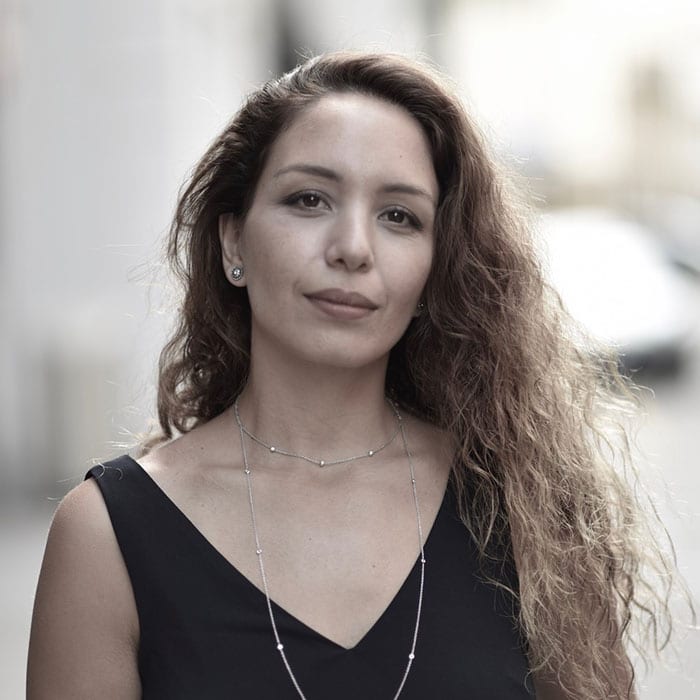 Rhéa Watfa studied Marketing and Advertising in Lebanon and specialized in Marketing and Communications. In her 12 years of experience, she has worked with one of Switzerland’s top hospitality schools, and with Lebanon’s leading winery. She joined HoCoSo to lead the company’s communication strategy, and handles all media and digital marketing matters, as well as events and conferences. She resides in Beirut, Lebanon.
Rhéa Watfa studied Marketing and Advertising in Lebanon and specialized in Marketing and Communications. In her 12 years of experience, she has worked with one of Switzerland’s top hospitality schools, and with Lebanon’s leading winery. She joined HoCoSo to lead the company’s communication strategy, and handles all media and digital marketing matters, as well as events and conferences. She resides in Beirut, Lebanon.
About HoCoSo
HoCoSo are advisors with a difference.
We create tailor-made and innovative solutions for clients’ hospitality-led projects by bringing together the optimum team of sector specialists.
Jonathan Humphries, Chairman and Owner of HoCoSo, and his direct team specialize in the extended-stay, co-living, and hotel-alternatives hospitality market; luxury, lifestyle and boutique hotels; and resort developments in Europe, the Middle East and Africa (EMEA). Our strengths lie in the following core services:
- Product & Concept Creation, for portfolio & individual asset developments.
- Strategic Development Projects with a focus on new-market / new-concept business expansion planning, operator selection, market and financial feasibility studies.
- Transformative Asset Management for brand re-positioning, asset re-evaluation and concept re-structuring.
- Hospitality Education for companies and academic institutions, with a focus on bespoke course development, training and teaching.
- Workshops, Keynotes and Conference Moderating for boards, leading international conferences and incubators.


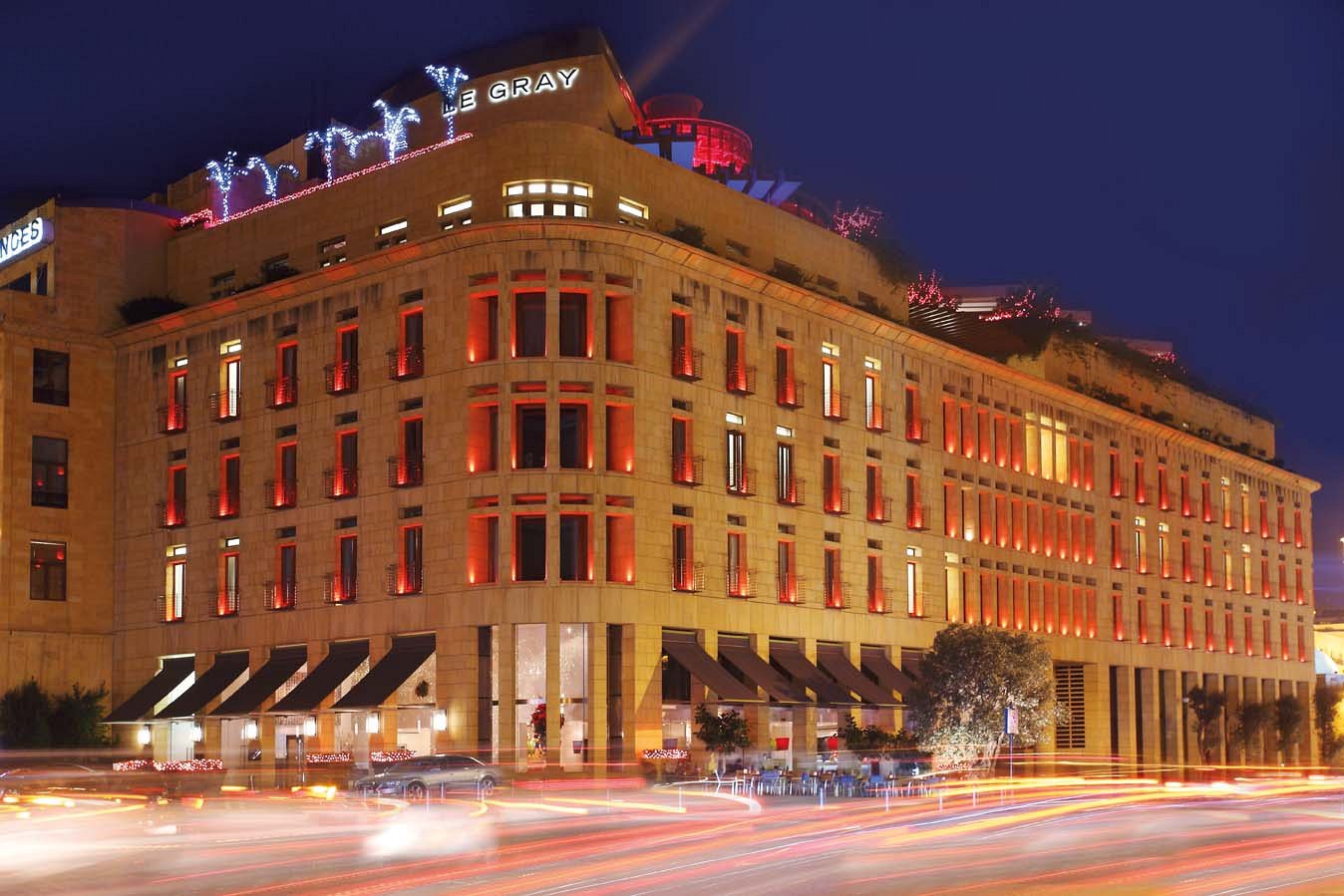
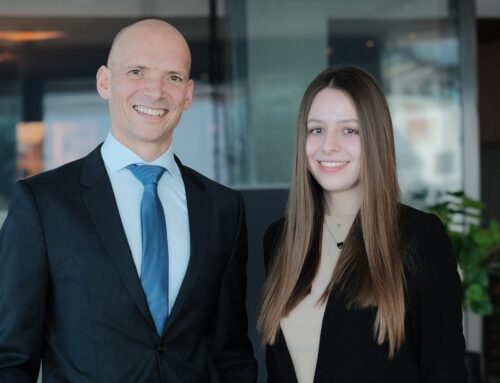



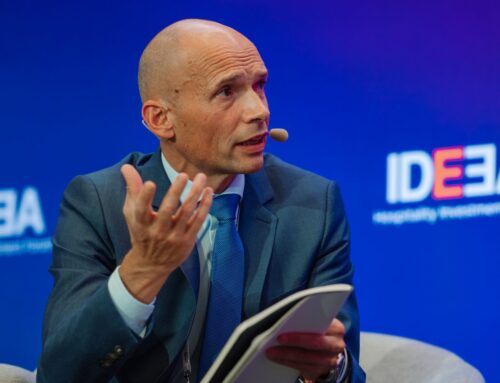
Leave A Comment